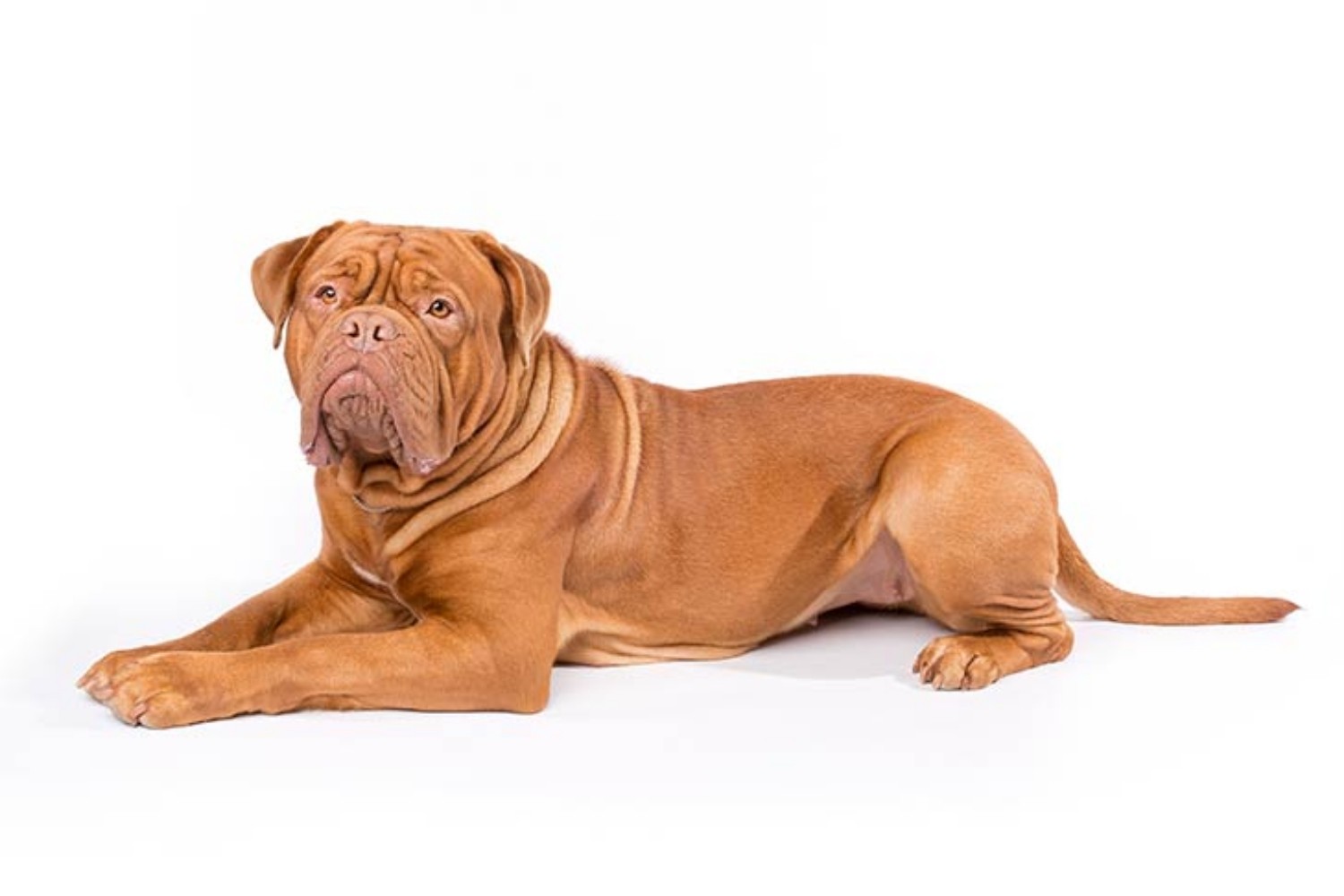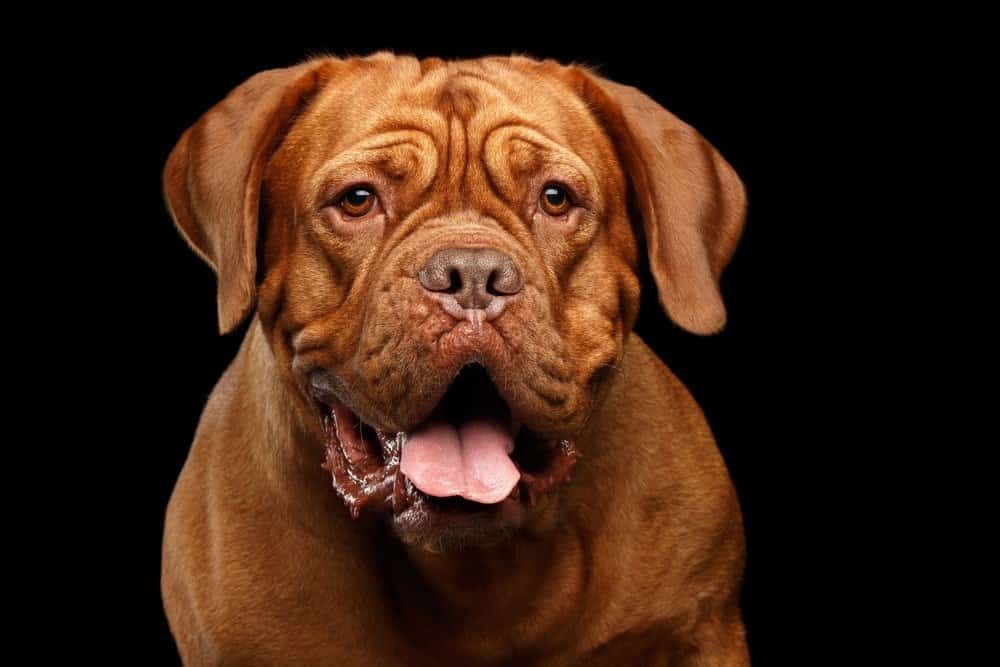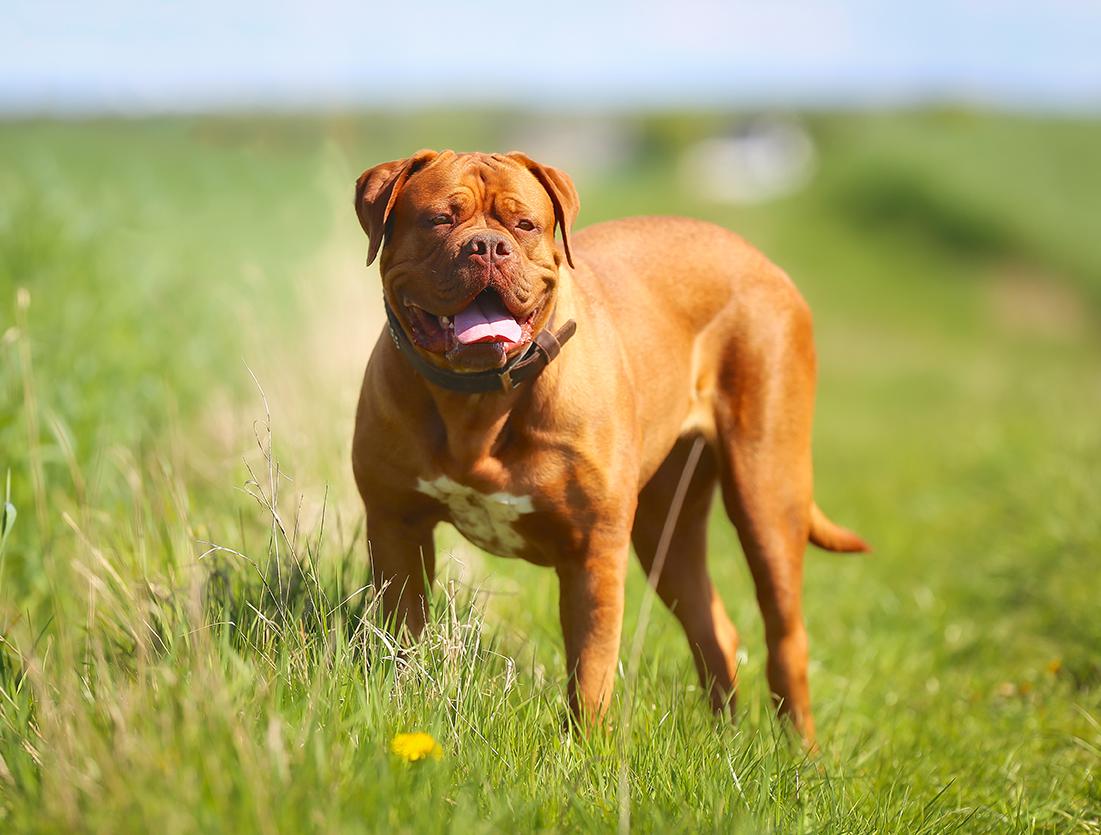
The Dogue de Bordeaux, also known as the French Mastiff, is one of the oldest dog breeds from France, with a lineage dating back over 600 years. It was used in various roles, including guarding castles, pulling carts, protecting livestock, and even fighting big game. The breed gained prominence in Bordeaux, hence the name, and was historically favored by butchers, merchants, and nobility for its strength and loyalty.
Though the breed nearly disappeared after World War II, dedicated breeders revived it in the mid-20th century. The American Kennel Club (AKC) officially recognized the Dogue de Bordeaux in 2008, and it continues to gain popularity as a devoted family guardian and companion.
The breed gained international attention through the 1989 movie Turner & Hooch, where a Dogue played the slobbery but lovable sidekick. While not as common as other mastiffs, this breed is cherished by enthusiasts who value its balance of strength, calmness, and deep affection.
The Dogue de Bordeaux is a massive, muscular Molosser breed, instantly recognizable by its wrinkled face, broad head, and imposing presence.
• Coat: Short, soft, and fine—lies close to the skin.
• Color:
o Various shades of fawn, ranging from light to mahogany, with black or brown masks.
• Size:
o Height: 23–27 inches (58–69 cm)
o Weight: 99–140+ lbs (45–63+ kg)
• Head & Expression: Extremely broad skull with prominent wrinkles and a short, powerful muzzle.
• Eyes: Oval, well-spaced, with a gentle, watchful look.
• Ears: Small, set high, and slightly dropped.
• Tail: Thick at the base, tapering toward the tip, carried low.
• Body: Powerful, compact, and low to the ground—muscular and solidly built.
Despite its intimidating appearance, the Dogue de Bordeaux is a calm, affectionate, and deeply loyal companion.
• Gentle with Family: Known for being devoted and sweet with children and family members.
• Protective by Nature: Naturally wary of strangers, making it a formidable guardian.
• Calm and Steady: Generally laid-back and patient, especially indoors.
• Courageous and Confident: Will not back down in defense of its loved ones.
• Emotionally Intuitive: Sensitive to the tone and mood of its family.

Perfect for those seeking a powerful yet affectionate family protector, this breed brings heart and strength to the household.
• Excellent Guard Dog: Alert and protective without unnecessary aggression.
• Family-Oriented: Bonds deeply—wants to be near its people at all times.
• Low Exercise Demands: Moderate needs—happy with daily walks and companionship.
• Easy Grooming: Short coat requires minimal maintenance.
• Calm Temperament: Particularly suited for quiet households with yard space.
Due to its size and structure, the breed needs responsible care, health monitoring, and structured routines.
• Training:
o Start early with firm, positive, and consistent training.
o Socialization is critical to ensure confidence without reactivity.
• Exercise:
o Needs daily short-to-moderate walks and a secure yard to roam.
o Avoid overexertion, especially in hot weather or during growth stages.
• Grooming:
o Weekly brushing is enough to manage shedding.
o Clean facial wrinkles regularly to prevent irritation or infection.
• Nutrition:
o Feed a large-breed-specific diet with joint and heart support.
o Monitor portions to prevent obesity, which can strain joints and organs.
• Living Conditions:
o Prefers indoor life with access to a secure yard—not a kennel dog.

As with many giant breeds, the Dogue de Bordeaux has a shorter lifespan (average 6–9 years) and is prone to some health conditions:
• Hip and Elbow Dysplasia
• Heart Disease (especially dilated cardiomyopathy)
• Bloat (gastric torsion)
• Skin Fold Infections
• Cancer (mast cell tumors, lymphoma)
• Orthopedic Issues (during puppy growth phase)
Early screening, vet guidance, and a balanced lifestyle are essential.
Compared to the English Mastiff, the Dogue is slightly smaller and more athletic, with a more protective nature. Unlike the Bullmastiff, which may be more reserved, the Dogue often shows more affection and emotion. It’s also less drooly than some mastiffs, though still a bit slobbery.
This breed is perfect for those looking for a gentle giant who also takes security seriously. With proper training and care, the Dogue offers deep loyalty, quiet companionship, and unshakable devotion.
It is not ideal for novice dog owners, those with small living spaces, or anyone unable to handle a giant breed with powerful instincts.
United Pet Club offers guidance, breeder connections, and resources for anyone ready to welcome this noble French guardian. Learn how to train, care for, and bond with one of the most gentle-hearted powerhouses in the dog world.